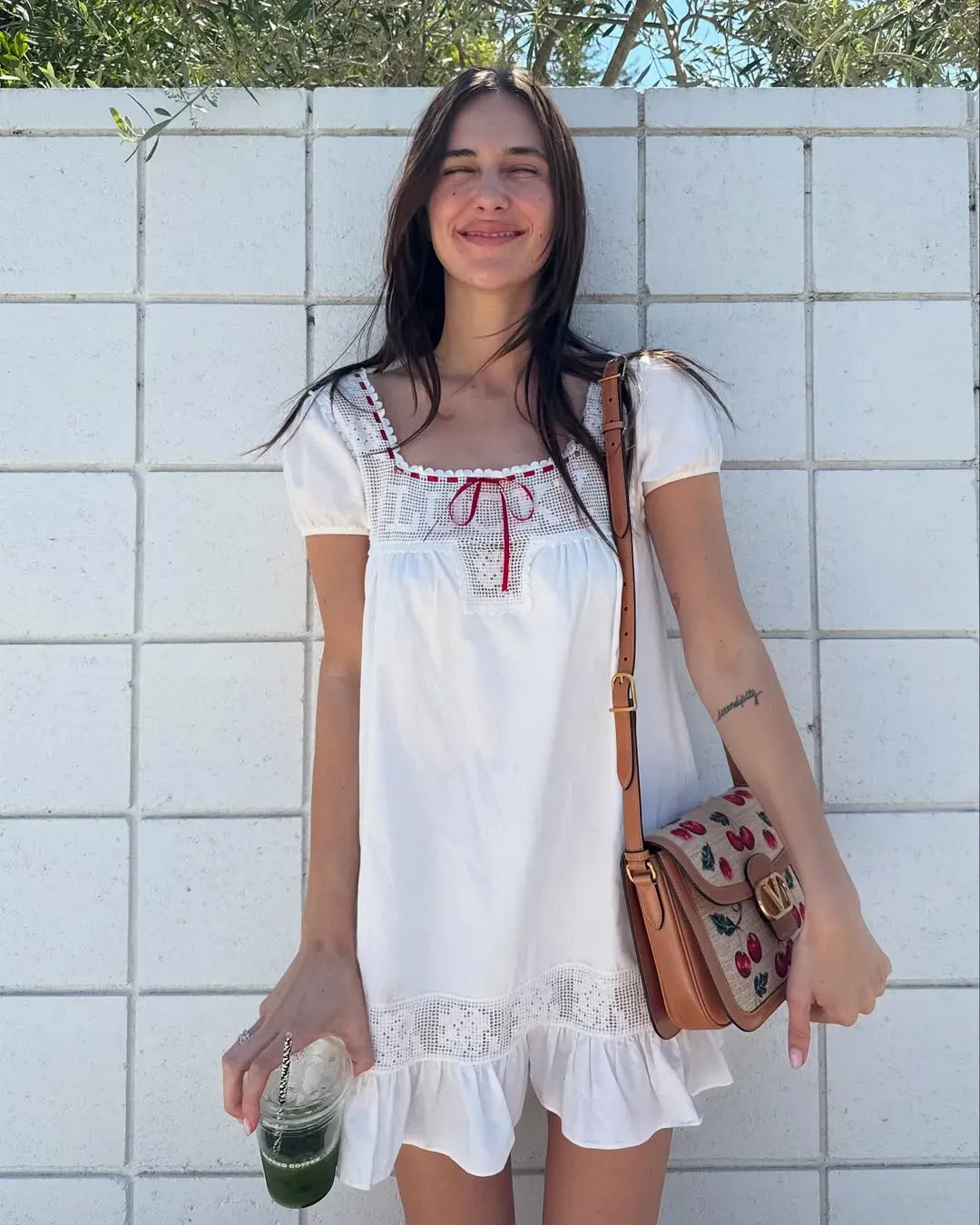
There's an issue with influencers reselling their gifts After the latest controversy, nss magazine reached out to Andrea Batilla
Last weekend, Instagram hosted a very heated controversy that revolved around the Depop profile of an influencer with a large following, a small fact that reflects a larger universe. The so-called shitstorm was unleashed against Giulia Torelli aka @rockandfiocc, a very popular blogger and influencer based in Milan who made direct and honest dialogue with her followers one of the reasons for her success. With over 140,000 followers, Torelli, on the one hand, has always paid great attention to IG Stories in which she shows the gifts that brands send her, as well as the products she buys herself; on the other hand, also thanks to her work (she deals with decluttering and wardrobe organization), she invites her followers to get rid of what is not essential or that has not been worn for a long time, often advising to resell these products on platforms such as Depop. And that's exactly what Torelli did, but also selling several items given to her by some brands. As the person directly concerned pointed out, the products on sale consisted of simple gifts that the brands, often small and in search of notoriety, had sent her hoping for an IG Story. And so it was, but out of pure courtesy and kindness of Torelli, without commercial agreements or contracts.
Beyond this specific case, and the ethical implications in Torelli's actions, a practice common to many other influencers, don't get me wrong, right here lies the crux of the matter, which unfolds on two levels. First of all, transparency: as a follower, do I have the right to know if what an influencer proposes is the result of a commercial agreement or if it's a product in which this public figure really believes? And how can this affect my shopping habits? On the other hand, however, the story revealed the now absolute dependence on the part of small and medium brands towards influencers, seen as the only possible and imaginable marketing strategy, pouring all the responsibility for their success onto external figures.
To better understand how we got to this grey area within influencer marketing, nss magazine asked a few questions to Andrea Batilla, a great fashion expert, former director of IED Moda Milano, founder and co-director of one of the first Italian independent magazines, PIZZA, and that has been involved in creative direction, brand storytelling and product communication for about 10 years. Batilla is also an author, his latest work is called Instant moda. La moda dagli esordi a oggi, come non ve l'ha mai raccontata nessuno, as well as being very followed on Instagram, where his live streams have become a must-have.
What does this latest controversy tell about the world of influencers?
In recent days, a paradoxical controversy has arisen around the fact that an influencer had resold clothes that had been given to her. Leaving aside the single case, I think the issue has revealed a grey area in the relationship between influencers and followers: trust. An influencer is primarily a marketing tool, a credible and precise platform to sell products or services, someone who can speak directly to the final customer, acquiring, of course, trust. The process of acquiring trust in this case, unlike real brands, is built through an expansion of intimacy, inviting followers to be present in every moment, public or private, of the life of those on the other side of the phone. This creates an artificial intimacy which at times, as in the case we are talking about, can lead to feeling betrayed in the face of certain actions, which are entirely justifiable.
Many of the activities that were at the centre of this controversy were free Stories, done as a favour by the influencer. How fair is it to attack them and take them as a starting point for a discussion on a phenomenon that is very regulated, especially from social networks?
It's not fair. When I see Antonella Clerici advertising MD supermarkets, I don't expect her to really shop there. I am somehow protected (more or less) against narrative artifice. Clerici is very likely to have her waitress do her shopping at Peck. The point is that from a cognitive point of view, sometimes you lose sight of the boundary between reality and fiction, getting caught up in a perverse marketing mechanism. Influencer marketing is actually regulated only up to a certain point because it is very difficult to clearly divide what is done sincerely and what is the result of work. Those who say they are always sincere lie knowing they are lying.
In a hyper-saturated world such as that of influencer marketing, shouldn't it be the job of brands - especially small or medium-sized ones - to rethink their marketing strategy, not basing it entirely on the media exposure given by these personalities?
The problem with medium and small brands is that they don't have the cultural and professional tools to understand which strategies to undertake. Especially in Italy, small and medium-sized enterprises are navigating at a disconcerting level of functional illiteracy. They rely on influencers (also) because they are easy to understand and give immediate results but I fear that to build a true corporate culture you need something called education. And here the gates of hell open.
In a historical moment in which the fashion industry is rethinking itself, this controversy has revealed the worst side of influencer marketing, portraying digital entrepreneurs as creators at the mercy of brands. Is it time for this industry to reinvent itself as well?
I wouldn't be so pessimistic. I see a new generation of extremely intelligent influencers, on average more sincere and far from the classic stereotypes of the soulless beauty who goes on vacation to the Costa Smeralda. Personally, I love Giulia Torelli for this very reason, like Annie Mazzola or Daniela Collu who have very precise identities, are real people and if they pretend they do it within acceptable limits. They are new characters because they are much more three-dimensional, with fewer filters. That said, none of them become friends with those who follow them. The rule of cognitive distancing works for them too, which must be kept in mind with all those who are influencers. Including me.
Can fashion survive without influencers?
No. Influencers speak directly to the final customer, something that fashion can't do because it works on the aspirational. As there are basically no more magazines and printed editions, this type of content can only pass through social media and their protagonists.






























































